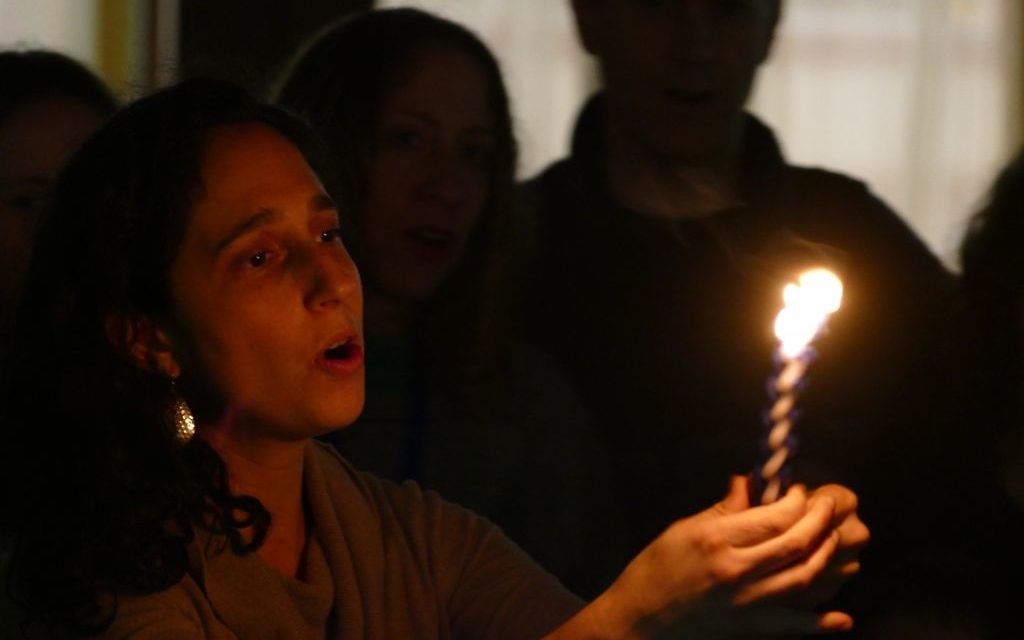Unity Shabbat Brings Solace After Violence
Cross generations come together to recount acts of hatred and injustice within past and present.
For most, Shabbat is a time to focus on the present and leave the world behind. It is a time for individuals to contemplate their role in society and how they are striving to to help make a difference.
For many, the world caught up with them when neo-Nazis and American white nationalists took to the streets of Charlottesville, Va., chanting “Blood and soil” and “Jews will not replace us.” In an effort to find solace and preserve Shabbat, various organizations and community leaders came together to share personal reflections regarding the events that transpired.
With the support of American Jewish Committee Atlanta’s ACCESS group, Temple Sinai was among many host sites that welcomed guests to speak on the matter Friday, Aug. 18, during a unity Shabbat dinner in partnership with the Schusterman Foundation, OneTable and Repair the World.
Get The AJT Newsletter by email and never miss our top stories Free Sign Up
Dedicated to celebrating diversity, the dinner strove to address deep divides within the community related to hate while strengthening cooperation among its members.
To help guide the evening’s discussion, participants were asked to choose a table and sit among people they didn’t know. A short pamphlet at the tables outlined the planned conversation.
Rather than follow the instructions, some groups dived straight into a dialogue, providing their own perspectives regarding cross-generational issues and the situation of Jews in the 21st century.
The Together at the Table Shabbat participants at Temple Sinai varied in age, but most were old enough to recall injustices targeting minorities in the wake of War World II and the civil rights era.
One person spoke about a grandfather who pulled a police officer off a horse because he was beating women on strike from a sweatshop. Forced into hiding after the incident and knowing that the authorities discovered he was Jewish, the man escaped only by paying off the cops.
Similar stories from other participants led to the conclusion that history often repeats itself in the targeting of Jews and other minorities.
While the older generation lamented past injustices, a millennial woman took the opportunity to expand on her own ideological strife. Although she supports various groups fighting for causes, she also feels conflicted about safeguarding her own values — noting, for example, that the Black Lives Matter movement has criticized Israel and accused it of training American police to kill black people.
The millennial also cited instances, however, in which minorities share similar concerns. On the one hand, they realize that anti-Semitism is on the rise, but they also know people who are targeted for the color of their skin, which she said reinforces the notion of white privilege.
Similarly, she acknowledged that when certain communities have limited exposure to others, the result often is hatred of the unknown.
Both generations at the table agreed, however, that the events in Charlottesville served as a wake-up call to the Jewish community, indicating that Jews could no longer afford to remain silent in the face of anti-Semitism. The millennial said it’s a struggle between being proactive with organizations such as the Atlanta Initiative Against Anti-Semitism and reactive in pretending that the issue does not exist.
There was also agreement at the table that stepping out of your comfort zone and trying to understand the other can be a step in the right direction toward addressing hate.
As the evening came to a close and participants thanked one another for sharing their personal reflections, they also took a moment to appreciate the opportunity to make friends while learning various perspectives and stopping the world, if only for a moment, to embrace Shabbat’s spirit of togetherness.





comments